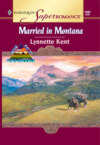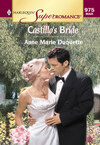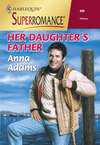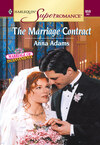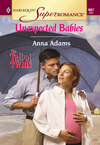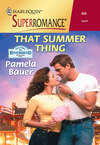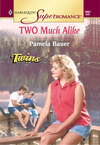Kitabı oku: «A Home Of His Own», sayfa 2
CHAPTER TWO
PHOEBE HAD NOT SET a time for her meeting with Lewis, and in late June the sun didn’t set until nearly half-past ten. When it was finally dark enough to sneak out, it was quite late. Well, she wasn’t really sneaking out, she convinced herself. She’d been studying all evening and told her father, who was still up watching television, that she wanted to get some fresh air. Jilly was at a friend’s house for a sleepover, and Trevor was out. Since he’d acquired his driver’s license that spring, he’d been out most evenings. Her mother and the baby, little Renee, had already gone to bed.
Harry Longquist looked up and nodded sleepily. Phoebe adored her dad. She felt momentarily guilty—really, she was sneaking out, wasn’t she?—and walked over and dropped a kiss on her father’s cheek. “’Night, Pops.” She squeezed his shoulder.
“’Night, honey,” her father said with a smile before returning his attention to the baseball game. The Jays were taking on the Mariners in Seattle.
Well, she was getting some fresh air.
She made a trip through the kitchen to collect a few leftovers. It had occurred to her when they were having their raspberry shortcake that evening that Lewis must be hungry. She filled a paper bag with a banana and two apples and loaded a plate with potato salad, sliced ham, two buttered rolls and some bean salad. At the last minute, juggling her load, she snagged a quart of milk from the fridge and let herself out the back door.
She set the food down carefully on the outside step, with a hiss at Gerald, the dog, who’d begun to thump his tail happily against the porch boards in gratitude for her apparent offering. Gerald looked offended and sloped off the porch and around the corner of the house. Phoebe reached back inside and grabbed an old windbreaker that belonged to Ben, her older brother. Ben was away, working for Adam Garrick at his ranch west of Glory, as he did every summer. He’d never notice the jacket was gone.
There was a moon overhead, waning now, and a few clouds, so that sometimes she could see nearly as well as daylight and other times she had to be careful not to stumble.
Lewis was waiting for her behind the chicken shed, as he’d promised.
“Oh, baby!” he said when he saw the food she carried. “Man, I was hoping I wouldn’t have to settle for sucking eggs tonight.”
“You wouldn’t!” Phoebe handed him the plate. She’d forgotten to bring cutlery, but it didn’t seem to matter.
“Oh, yeah, I would.” He scooped the potato salad up with a piece of ham and chewed hungrily. “Thanks,” he mumbled, his mouth half-full, waving around the chicken yard. He bowed slightly and took a step backward. “What’s this?” he asked, tasting the bean salad gingerly. “Bean salad?” Before she could say anything, he’d tipped it off his plate, onto the ground. “I hate that stuff. Treat for the hens tomorrow,” he said, grinning at her. “But thanks all the same.”
She held out the jacket and he took it with a smile. “Good girl. You thought of everything. Let’s sit down.”
Phoebe looked around. The chickens were all inside their shelter, roosting for the night. “No thanks. Come on.” Phoebe led him out of the enclosure, shutting the gate behind her, and they sat down on the dewy grass between the chicken coop and the garden.
“I brought you some fruit, too,” she offered. “In case you get hungry later.” She gestured toward the bag, then gripped her knees with her forearms and watched him eat. He popped the lid on the milk jug and drained half of it in one long swallow. Phoebe smiled to herself. She was pleased she’d remembered to bring food. And the jacket. She’d done the right thing.
When he finished, he patted his shirt pocket absently. “Damn, I forgot. I quit smoking.”
“You did?” Phoebe was happy to hear that.
“Well, sorta.” She could hear him grinning in the semidark. “I ran outa smokes. And money, too.”
“I’ll feed you, but I won’t buy you cigarettes,” she said firmly, leaning back, then felt his hand on hers in the grass.
“C’mon, Phoebe. I haven’t got much time. Let’s talk.”
“What do you want to talk about?” She felt shy suddenly.
“You. Me. Everything.” He hunched closer to her and she felt the warmth of his shoulder against hers. She shivered and he put his arm around her. It reminded her of the time he’d first kissed her in the orchard.
“Cold?”
“A little. It’s damp here.” She wasn’t shivering because of the damp and she knew it. “Let’s go over behind my uncle’s house,” she whispered. “There’s a hammock.” She needed to buy a little time, and it worried her that anyone could look out the back of the house and spot them sitting there on the grass. Still, she surprised herself with her own daring, suggesting a more private tête-à-tête. “My aunt and uncle are away.” She glanced first toward Lewis to gauge his reaction, then at the darkened side of her own house. People slept with the windows open on summer nights. She’d die if her mother heard her talking and came out to investigate. Or if Trevor came home and caught them.
“Okay.” He stood and slung the jacket over his shoulder, then stooped to pick up the milk and the bag of fruit. He took her hand and pulled her up beside him. They left the plate in the grass. “Lead the way, princess.”
Princess Phoebe. That was a good one.
LEWIS MUNCHED on the apple. Phoebe could hear the strong crunch of his teeth every time he took a bite, although she could barely make him out in the near pitch-dark.
It had to be close to midnight. They were still in Uncle Joe’s hammock, behind his house. They’d sat on it for a while, swinging their feet. Then—she wasn’t quite sure what had brought on the change—they’d swung their feet up and lay down side by side. Other than sliding his arm around her, so that she could rest her head on it, and occasionally hugging her, he hadn’t tried anything funny. Not that Phoebe was worried; she was quite confident she could take care of herself if the need arose.
But his quiet, just-friends behavior surprised Phoebe, considering their hot kisses that afternoon. Maybe she ought to give Lewis more credit than she had so far. Maybe he wasn’t just out to get whatever he could, whether from a girl or from the system he seemed to despise so much.
“Tell me about your mother,” she said. “Don’t you worry about her living out there alone?”
Lewis thought about the question for a few minutes. Then he sighed. “I do. It’s just that…I don’t have much in common with them. Billy’s more like an aunt or something than a sister. She’s sixteen years older than me and she never talks, never says boo. You know what she’s like. Ma? Well, she’s kind of weird.…”
His voice trailed off. Phoebe realized he was being excruciatingly honest with her. He was right; his sister and his mother were pretty weird. Still, they were his family, he must feel something for them. “Did you send them money? Before…you know?” Phoebe knew that neither woman had an outside job.
“Before I went to jail? Yeah.” Lewis seemed a little agitated. He swung the hammock vigorously with a foot he had extended to the ground. It was fairly cold now, and Phoebe felt clammy from the dew settling in the air. She was glad she was snuggled up beside Lewis. His body was warm, even hot, and he didn’t seem disturbed by the damp. “I gave them money when I was working. Even that rustling business…” He laughed, a short humorless sound. “That was to try and get a decent stake for them. I sold a couple of the steers we stole and made some serious money. I knew it couldn’t last…”
“It was stealing, Lewis,” Phoebe said. “It’s wrong.”
“You can say that. You’ve never been hungry,” he responded bitterly. “You don’t know what it’s like to have do-gooders coming out to visit, figuring if they leave off a bag of grub they’ve got a right to take up your time. Like they own you. Or the religious busybodies…”
Phoebe raised her head to look fully at him. “I hope—”
“No,” he broke in. “Not you or your folks. Your ma’s a pretty nice lady. I know Ma and Billy think the world of her.”
Phoebe lay back down, mollified. He had a point. What about the other side of it? It was one thing to help people out, but what was it like to be always having to accept help?
“How about your dad? You ever hear from him?” Phoebe had never heard anything about a man in the Hardin family, other than Lewis.
“Could be dead for all I know.” Lewis shrugged. “Some drifter, probably. I have no idea who my father is. Do you believe me?”
Phoebe was stunned. “Oh, Lewis…” She turned to him, into his shoulder, and her eyes sought his in the semidark. It had grown lighter now that the cloud was moving off the moon.
“You don’t need to feel sorry for me, Phoebe. All I know is, every once in a while, back when I was growing up, Ma or Billy would find an envelope stuffed with cash in the mailbox. Used to be just like Christmas.” She heard his smile. “I’d get new clothes, Billy would order a bunch of seeds from the seed catalog, Ma would buy a new coat, if she needed one. Or a pair of boots. I never knew where the money came from, but I used to pretend it was my father, looking after us, you know? Maybe it was. But maybe it was just some do-gooder. It was always cash. No return address.”
Phoebe nodded.
Lewis laughed that bitter laugh she was beginning to recognize and dread. “I figure the bastard must be dead. Hasn’t left us any money for quite a few years now. If it was him in the first place.”
Phoebe didn’t know what to say. She couldn’t imagine life without her parents. They were both so understanding, so supportive. A father, especially. How could Lewis have managed with no father in his life? A lot of people thought Harry Longquist was gruff and grumpy since his accident, but Phoebe knew better. He was an old softie inside. It sounded like Lewis had brought himself up, really. She remembered that spare room fashioned out of a box stall, the first time she’d ever seen him. He’d been trying to build up his muscles, working out with that makeshift punching bag. She could still see the sinews in his skinny back, hear the shout of frustration when he gave it up.
Phoebe reached up and put her hand on Lewis’s chest. She touched his throat, bare and warm in the cold night air. “I’d better go, Lewis. I— I’m glad you talked to me. I really hope things work out for you—”
“You mean that, don’t you, Phoebe?” His voice was raw.
She nodded. “I do.”
“Kiss me, Phoebe. Kiss me one more time before I leave. I’m going to start walking toward town. Someone will pick me up— I’m not worried about that. And tomorrow, I’m going to turn myself in to the cops. Finish my sentence.”
“No more sneaking out in laundry trucks?” she asked, running her fingertips along the line of his throat, where his T-shirt met his neck. She felt him shiver.
“Nope. I’m gonna do my time, put it behind me. Start looking after Ma and Billy again. They need me. They got nobody else. And, Phoebe, I want you to…” He paused and turned to her, fingering one of her braids. “Ah, hell, never mind. Just kiss me!”
Phoebe kissed him. She was hoping he’d ask. She wanted to lose herself in the luxury of his arms, his warmth, the skill of his kiss. Lewis was no rank beginner at the art of love, as she was.
He pressed her close against him and she could feel the bulge of his erection in his jeans. He made no attempt to conceal it. Her pulse shot into overdrive, but she knew they had to stop. This…this wasn’t right. She pushed back, gently.
“What…what were you going to say?” she managed, wiping her mouth with the back of her hand. Her breath was out of control, her breasts were swollen and aching.
“What about?” he murmured, kissing her neck and throat.
“When you said…something you wanted me to do…” She lay back in the hammock, every nerve in her body singing, every muscle mad with need.
“I wanted to say…” He kissed her deeply, reverently, then raised his head and stared down into her eyes. Phoebe could see him clearly, since the moon had emerged from behind the clouds. “I wanted to say that I wish you’d wait for me. But I know that’s crazy.” His voice was deep, every word he said so…so tender! Just like in the movies. “You’ve got your own life to live. There’s no future for the two of us. You and me. We’re…we’re just…I don’t know—accidental friends, I guess. If you’d never come out to the farm with your mother…” He shrugged.
“You gave me a frog,” she told him softly.
“I did?” He sounded amazed.
“Yes. Remember that first time, when I was up in the hayloft at your place? You threw a wooden frog up to me.”
He grinned. “That’s it, kid. I’m the frog and you’re the princess. Like I said, no future.”
He sat up and swung his legs over the side of the hammock. Then he climbed out and helped her down. Phoebe felt cold now that she was separated from him. She was still wearing shorts, although she’d put on a long-sleeved shirt before she’d left.
He shrugged on Ben’s windbreaker and picked up the paper sack with the fruit in it. They walked toward her house, hand in hand. Phoebe noticed that her father’s truck was parked outside the garage. Which meant Trevor was home. She hadn’t heard him drive up.
“You’re a good influence on me already, Phoebe. You know that?” He stopped and pulled her into his arms and brought her hips close against his. Phoebe was glad of the darkness, because she knew she was blushing.
“Oh? In what way?”
“If I wasn’t trying to turn over a new leaf, I’d be tempted to hotwire that truck over there and drive it to town. Maybe get another six months tacked onto my sentence.”
Phoebe was shocked. How naive was she? Of course. Lewis Hardin had been on his own, looking after himself all his life. These were the kinds of things he did.
“As it is, I’ll just walk out to the main road like a decent, law-abiding citizen and hitch a ride.”
Phoebe laughed. “You’re sure you’ll be all right?” She wondered if she should offer to give him a lift. But if she started the truck, someone would be sure to come out and see what all the activity was about.
Lewis drew her close and kissed her again, one last, lingering kiss. Then he grinned at her. “I’ll be fine—now.” Phoebe thought she’d weep at the sweetness of his farewell. It was so romantic.…
Then he stepped away from her and started walking down the dirt road that led to the farm. It was only half a mile or so to the paved secondary highway. He turned once and raised his hand in farewell.
Her highwayman was leaving her.
Phoebe felt her lower lip tremble, then realized her face was wet with tears. She raised her hand in return. “Goodbye,” she murmured, catching back the “godspeed” that had trembled on her lips. She realized she’d read too many novels. “Don’t worry, I— I’ll wait for you, Lewis Hardin. Forever. I promise.”
FOREVER WAS a very long time.
That summer Phoebe started dating one of the boys who’d graduated the year before but returned to Glory to work for the summer in the town office. His kisses weren’t anything like Lewis’s, but on the other hand, he was ambitious and smart, and everyone said he was bound to go far.
Go far. That was what Phoebe wanted.
She worked hard in her senior year and graduated at the top of her class. Her parents were ecstatic. Two scholars in the family! Ben, her brother, hadn’t achieved marks as spectacular as hers, but he was doing well at his course in university, working part-time during the school year and saving every penny he made in the summers to put himself through.
Phoebe got a scholarship from Cross-Canada Pipelines—their big scholarship, which they awarded to only one student in each Western province. She wouldn’t have to worry about money. All she’d have to do was keep up her average…and the future was hers.
In Glory, her path only crossed Lewis Hardin’s again once. After grade twelve, she gave in to curiosity about Lewis, and what he was like now, and bid on him at a bachelor auction in town. He was out of jail by then and working at a ranch west of Glory. She didn’t know what had possessed her to do such a crazy thing.
Phoebe shuddered when she remembered the disastrous evening she’d spent with him. Any silly romantic dreams she might have had about Lewis Hardin had died a swift death. How could she have been so wrong about anyone?
She never heard from him again while she lived at home. Then, in her first year of university, she got a letter forwarded by her mother, with a note attached expressing her amazement that Phoebe was corresponding with “that Hardin boy.” Phoebe had never talked about her feelings, had only confided a few girlish yearnings to her brother Ben. She knew now that what she’d felt for Lewis was nothing more than a crush. The note told her, with many misspellings and scratched-out phrases, that Lewis had given up ranching and taken a job on a wildcat rig up north. Somewhere up by Fort Chipewyan.
A long way from Glory. A long way from the University of Alberta in Edmonton, where she’d begun her science degree, specializing in organic chemistry. Phoebe had reread the letter, alarmed that her first sense of relief had given way to something else. An ache. A yearning. A wondering—what was he like now? Had he ever changed…for the better?
She’d never know. And she had too much to think about these days to wonder for long about the life and prospects of Lewis Hardin, ex-convict. Lewis—along with the wooden frog, which she’d left at Swallowbank Farm at the very back of the closet in her room, taken over now by Jilly—was part of the past, of her childhood.
Phoebe was twenty now. And she had serious prospects of her own.
CHAPTER THREE
Three years later, the present…
LEWIS WIPED his face. Or attempted to wipe his face. His sleeve was as muddy as the rest of him. The roar of machinery and the dull sound of the diamond bit far below the earth’s surface, coupled with the shouts and curses of tired, overworked men, filled the early-morning air. There was no time to appreciate the full richness of midsummer, the cries of the black-capped chickadees with their nesting songs from the willows. Or to notice the sharp scent of the poplar trees, white and black, gorged and green with summer sap.
All Lewis smelled was drilling mud, male sweat and the sudden stench of fear in the hot summer sunshine.
Men were shouting. They’d lost pipe! Disconnected steel shafts and rogue chains whipping across the base of the drilling tower could be lethal. Slippery drill mud made for treacherous footing, even in steel-toed, caulk-soled Grizzlies. Last night’s rain hadn’t helped.
But the crew was seasoned. Lewis knew they could handle anything that came up on the site, including this kind of setback, which had happened just as they approached their target depth.
Drilling for oil and gas was a twenty-four-hour-a-day business with big money at stake. The Calgary syndicate that had put together the cash for this venture expected returns, and they expected them fast. Anything Lewis’s crew wanted, they got. Whether it was racy movies or porterhouse steak served twice a day. Lewis’s employer, F&B Drilling, drew the line at bringing in women, but everything else was possible. Nothing mattered except getting the job done.
The job? To get in and get out as soon as possible with the kind of drill samples that could send a syndicate’s shares soaring on the exchange or crashing through the basement. If the news wasn’t good, it wasn’t unusual for the principals or the good friends and wives of the principals to bail out before the news spread. It was illegal, of course—insider trading, or the nearest thing to it—but that couldn’t always be proved. Nothing grabbed an oilman’s blood like the fever for black gold.
A tight hole meant approved personnel only on the site. Other companies, competitors, were not above sending in spies. A tight hole meant a security check on each and every pickup that drove in. Every delivery. Every visitor. The big sign out front at the secondary road, where the raw, freshly bulldozed and graveled rig road led to the site, meant exactly what it said: Tight hole. No admittance. That means YOU.
Tight holes and the security that went with them were Lewis Hardin’s particular specialty. No one got into a site, drilled and got out faster than Lewis Hardin’s crews. He’d begun as a roughneck on the drilling platform, the roughest, meanest, dirtiest job in the business. He’d moved his way up to tool-push, the captain of the project. His rise had been spectacular, and he had men on his crew—men who respected him—who were nearly twice his age. The partners who owned F&B were urging him to join them as a full partner, sweat-equity. Other companies had been courting him, too, incessantly, annoying him more than anything.
But Lewis wasn’t sure that partnership—or switching to another drilling outfit—was a move he wanted to make.
He was twenty-seven and getting restless. He’d never stayed at one job as long as he had this time with F&B, which was the hottest medium-size drilling company in the province. He sure wasn’t going back to ranching—not until he had the stake to set up his own place—but he was getting tired of the oilfield. Two, sometimes three weeks on the job, twenty-four hours on call, then a week or two off, if you had an assistant push. If not, you stayed until the job was done. It was a cowboy, Dodge City kind of life: work your guts out, then spend your paycheck in town and start all over again, broke. For most single guys, the money made it all worthwhile.
But after a while, even the toys began to pall—the brand-new four-wheel-drive vehicles, the snowmobiles in winter, the prize shotguns and the best dogs in duck season, the dirt bikes and ATVs in summer. Lewis used to enjoy it, but the last few times he’d taken time off, he’d driven five straight hours to do some fishing by himself down in Glory country, back where he’d been born and brought up. He spent a few days helping Billy and Ma, fixed a squeaky door, spaded a new garden patch, tacked down some roof shingles. Keeping up the fence alone was a mammoth task, and he’d almost decided not to bother. What was the point? The Hardins had no animals but the few sheep they kept in the derelict orchard. A dozen or so scrawny chickens in the henhouse. There was no haying or farming going on. Never had been, in Lewis’s memory. But the two women who’d raised him, his mother and his sister, wouldn’t hear of giving up the homestead. Last time he’d been home he’d convinced them to lease some of their grown-over pasture to a neighbor. At least that meant a little money coming in monthly, besides what Lewis sent them.
How did they live? Lewis really had no idea. Of course, they had no mortgage. No debts.
No expectations. No hope.
They kept a garden and had a few eggs from their chickens. The only cash they needed was to pay their electric bill each month and their taxes once a year. Mercy sold the quilts she made, several a winter, to a craft store in town. Billy sold garden produce at a roadside stand, but mostly, she just gave it away. They bought tea and flour and sugar. Dog food. Feed for the sheep. Ma and Billy both wore secondhand clothes, and their Ford pickup was ancient. It shouldn’t have been running at all, but somehow Ma kept the old wreck going with a little haywire and a lot of luck.
Glory.
The town was like a great big bad dream. He’d thought he’d left the place behind him for good when he’d quit Adam Garrick’s place that first terrible summer after he’d gotten out of jail. But maybe he hadn’t. Something always seemed to pull him back like an invisible line, especially lately. A thin, taut line, a strand of twisted steel that never let him go. A yoke. The farm itself, he supposed, was one thing. It had been in Ma’s family forever. The Rockies, the foothills? Maybe. He loved the wide-open country. It was a place where you could breathe. Something pulled him back.
Phoebe Longquist? Ha. He’d never forgotten her, but she wasn’t much more than a fuzzy memory now, just a kid dressed in shorts and a home-knit sweater. Some hot kisses. A few quick gropes in her uncle’s hay field. The kind of heart-to-heart midnight talk that had embarrassed him the next day, in the hard light of noon. Girl talk.
He’d had half a dozen girlfriends—maybe a dozen—in the years since he’d last seen Phoebe, the late-summer night she’d come out of nowhere to spend her hard-earned money on him in a charity auction. What a disaster that had been. He hoped the experience had cured her of any romantic notions, if she’d needed curing. She didn’t need a guy like him in her life, and he was pretty sure she’d got the message that night.
He’d balked at joining the other cowboys in the auction right from the start. Publicity of any kind was the last thing he wanted, either to remind the town of him and his prison record or of his long-suffering crazy family living out there on Bearberry Hill. Adam Garrick, who’d hired him when he got out of jail, had told him the auction was for a good cause. Not that a good cause normally would have pulled any weight with Lewis, but he owed Adam and this was as good a way as any of repaying him. Adam had taken him on at the Double O, albeit reluctantly, when few other ranchers would even look at him. A cowboy who’d gone to jail for stealing his boss’s steers had few prospects of employment in ranch country, no matter how shorthanded an outfit might be. Country people had long memories.
YES, GLORY WAS on his mind, but damned if he was going back there this time. It was a good three-hour drive to Edmonton, with an eye out for radar traps, and he intended to spend the first couple of days in the province’s capital city. He kept a studio in an apartment-hotel, right downtown on Ninety-Eighth Avenue. Bed, table, stove, fridge. He never cooked, but the fridge was handy for beer and leftover pizza. He wasn’t sure why he rented the apartment, since it was expensive for the use he got out of it—maybe a week a month, if that. But Lewis liked having his own place, no matter how barren and impersonal. Ma’s run-down homestead, a cell in the lockup at Fort Saskatchewan, cowboy bunkhouses, mattresses on the floor at various friends’ places in town—most of his life had been spent under someone else’s roof.
One day Lewis intended to change all that. The apartment was a start.
This weekend was the big event that Bethany had been waiting for. He’d known Bethany Cook for six months. They’d been lovers for four, although Lewis was aware that the relationship was cooling off. Bethany, he knew, saw other guys when he was out of town. Which was okay by him. When you were contemplating a split, it was always easier when the other person had been no saint, either.
He’d offered to help Bethany with her deliveries and setups this afternoon for the big riverboat event. She ran a small florist shop on Whyte Avenue— Bethany’s Blooms—and this reception on the Alberta Queen for the new dean of science at the University of Alberta was a huge coup for her, one she hoped would lead to more university business.
Miles of lonely muskeg and thickets of black spruce swept by on either side of the highway. It was a grim landscape, but Lewis barely noticed. He was used to it. Once in a while he’d catch sight of a coyote skittering off into the ditch. Or a deer or moose. Sometimes he’d see a black bear browsing in the lush grass beside the road; it wouldn’t even look up as he drove by. He’d driven this road a thousand times, it seemed, in the past few years.
As he got closer to Edmonton, the scruffy forests gave way to cleared land, first bare-knuckle little farms and ranches, scraped out of the muskeg and trees, then more verdant hay and grainfields, fenced pastures with cows. There was no cattle ranching here on the scale of southern Alberta, but the district grew plenty of grain and hay to supply the ranchers and feedlot managers. Wheat, too. Some of the fields showed tall stands of winter wheat, almost ready for harvest. Lewis noted the mallards and pintails that had already raised their families in the weedy shallow sloughs that lay in the hollows of the hills; they were still hanging around, resting up, building reserves for the long flight south.
Summer made him restless. The truth was, every change of season had that effect on him. Closer to the provincial capital was plentiful evidence of Alberta’s new emphasis on agribusiness. Telltale clutches of feed silos marked the windowless, vented barns of broiler and hog operations nearby.
Poor trapped creatures, Lewis thought. Never even glimpsed that high blue sky. Just scrapping for their share of chop, chewing on each others’ tails and ears out of boredom, then the short one-way ride to the slaughterhouse.
Nothing like old Molly Baskins, the black-and-white Berkshire sow he remembered Ma keeping when he was a child. Old Molly Baskins had just lain down in the orchard one day with a great sigh and never got up again. They’d had to dig a hole right there and roll her in and cover her up, Ma bawling her head off the whole time. That sow had had the best possible life a pig could have. Table scraps, rotten apples, oats and barley chop, pleasant afternoons spent rooting through the orchard for succulent roots and smelly old fungi. An ancient collie for a pal in her last years. A mud puddle to lie in on a hot day in August.
Lewis grinned. Quite the life, all right! Then he frowned—why the hell had they called her Molly Baskins? Probably one of Billy’s crazy ideas. Who ever heard of a pig with a last name?
Finally Edmonton loomed on the skyline—a spread-out prairie city located on the wide winding valley of the North Saskatchewan river.


